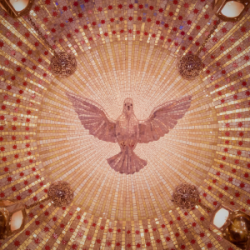June 6, 1944 has been called by many the most important single day of the 20th century. The power of its memory has faded somewhat now, with time and the passing of most of the soldiers, sailors, airmen, Marines, and Coast Guardsmen who fought in the invasion of Normandy in World War II. It is sixty-seven years since Allied forces assaulted the Normandy beaches; indeed, it is already twenty-seven years since Ronald Reagan made his oft-quoted speech commemorating the 40th anniversary of the battle in 1984.
Americans and West Europeans have been living on the aftermath of that great battle throughout the decades since. The Normandy invasion, combined with the extraordinary campaign by our Soviet Russian allies from the east, was supremely decisive. Its outcome wrote for us a narrative of victory so transformative and essential that today, we hardly realize the extent to which our very idea of ourselves has rested on it. With their success at Normandy and in the battles across northern Europe, our fighting men put firmly behind us an existential threat to civilization. We still study the evil of Nazism, committing ourselves to preventing its reemergence, but our defining memory—the touchstone of our belief about how history is going for us—has not been the horrors of the 1930s and 1940s, but rather our triumph over them.
In 2011, however, there is a growing sense that our narrative is breaking down. The very things the "boys of Pointe du Hoc" fought to put behind us seem to be casting a shadow on the earth again. The international order that most of today's adults were born into is crumbling. The winds of turmoil, existential doubt, even insanity seem to be stirring around the globe. Echoes of the Great Depression sound in our relentlessly bad economic news. The nations have accumulated a combined debt so staggering as to be virtually incomprehensible. Even the weather evokes memories of the destructive patterns of the 1930s.
But there is yet another reason why the 67th is the first anniversary of D-Day on which it seems that the connection with our narrative has been broken, and we can no longer assume we are living in the world the boys of Pointe du Hoc fought to win for us. The grotesque black hand of anti-Semitism, the energumen that infused fascism and Nazism with a demonic urgency, has stolen again over a startling amount of the globe. And it is taking less and less trouble to hide itself.
Americans are probably most familiar with the resurgence of anti-Semitism in Europe. Its drumbeat has been steadily accelerating in the last few years; new-media reporting has been covering it in detail, with fresh surveys by concerned writers (see here and here) in just the last month. But anti-Semitism is a growing problem in the U.S. as well, particularly on college campuses. Canada has not been immune. In Hugo Chavez's Venezuela, as in other parts of Latin America, Jews are losing the protections of law, and radio audiences are advised by state-sanctioned broadcasters to read the Protocols of the Elders of Zion.
A remarkable eruption of anti-Jewish sentiment—seemingly from out of nowhere—was reported in China in May, when a social-media user posted an elaborate rumor about Adolf Hitler's supposed Chinese connections. Asian reporter Richard Komaiko recounts the spread of a theme in Chinese cyberspace that Jews are responsible for the parlous state of the global economy.
But anti-Semitism in the Muslim world is the most notable and may be the most dangerous trend. Collections of translated video like this one indicate that political leaders themselves are fomenting anti-Jewish hatred. The "Arab Spring" uprisings offer a welcome opportunity for a new order of liberty and tolerance in much of the Muslim world, but disturbing signs of anti-Semitism in Egypt and Tunisia jeopardize the tremendous potential in the popular movements.
This video, for example, shows Tunisians converging on the main synagogue in Tunis shortly after the uprisings there began. Waving black and white "caliphate" flags, they shout "Khaybar, Khaybar, ya yahud, Jaish Muhammad saya'ud!"—"O Jews, remember Khaybar (the site of a 7th-century massacre of Jews in Arabia), the army of Muhammad is returning!"





